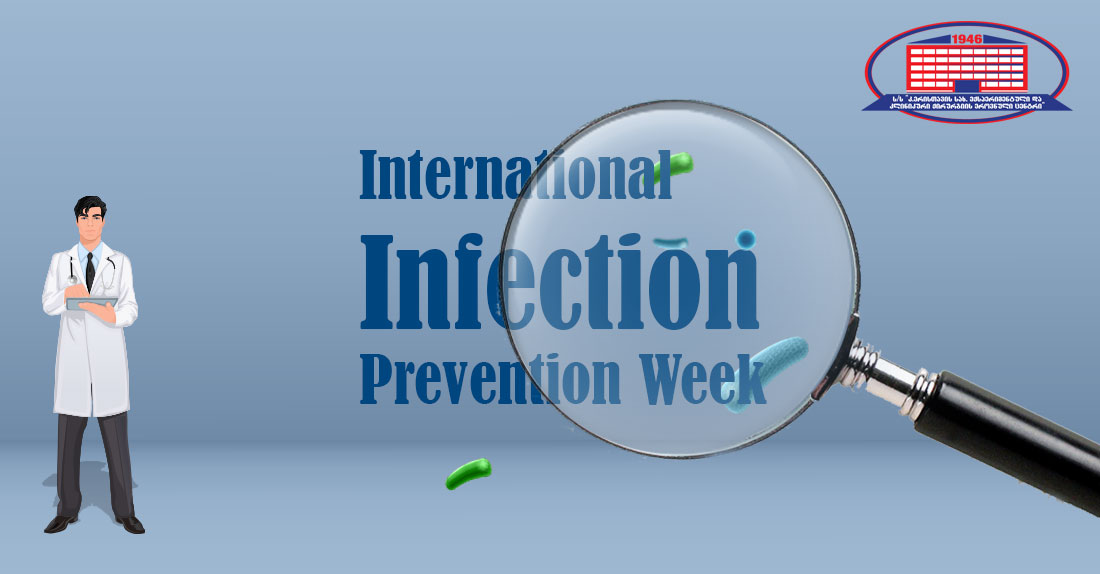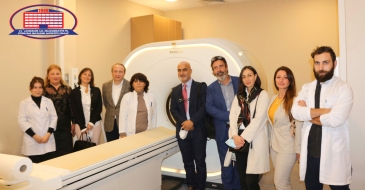
National Center of Surgery
By the end of the twentieth century, it was evident that humanity's conflict with the microcosm had reached a new level.
On the one hand, this resulted in a weakening of antimicrobial drug forces and, on the other side, an increase in bacterial virulence. During this time, new strains of viruses and epidemics appeared, significantly undermining scientists' and successful countries' conviction that humans could now easily and manage infections, defeat and overcome diseases caused by numerous species of bacteria and viruses.
During this time, the concept that the era of antibiotics was over evolved, and as a result, a trend emerged, with the emphasis on preventing infections rather than defeating previously developed infections.
President Ronald W. Reagan established „Infection Prevention Week” in 1986. The event focuses on measures to prevent infectious infections that can interrupt a person's regular rhythm of life, damage health, and threaten life.
Of course, the coronavirus and the prevention of health damage caused by it have been on the agenda of Infection Week for the previous two years. The COVID-19 pandemic has shown us how important infection prevention is for the people around us.
The annual week aims to raise awareness in each individual, to address the problems created by the illness in a broader context, and to learn how to avoid and live with it. Furthermore, we are exposed to several causes of infection on a daily basis in our living environment. It could be public transportation, items, food, swimming pools, and so on.
The following are the top five infections that are damaging to one's health:
- Tuberculosis- is one of the deadliest infectious diseases. Last year, the bacterium, which is spread from person to person via airborne droplets, was found in 10 million people, 1.5 million of whom died.
- Measles -is a highly contagious virus-borne disease spread through coughing, sneezing, and close contact. It remains in the air for two hours and is so contagious that it can infect 90 percent of those who come into contact with it; each year, more than 20 million people worldwide are verified to be infected. Sadly, it is still regarded as a tough disease to eradicate in African underdeveloped countries.
- Malaria - between the 1930s and 1950s, infected mosquitos spread the disease throughout Western Europe and the United States. It is an infectious condition caused by a parasite that causes high fever and chills in sufferers. According to 2019 figures, 229 million individuals fell ill with malaria, and 409 thousand died as a result of the disease.
- The influenza virus/The Flu - which is activated every year with the arrival of winter. Most people connect this with lying down at home for a few days and receiving medical care, but, for the elderly, pregnant women, and patients with chronic conditions, it frequently culminates in death. The World Health Organization estimates that the flu affects 3-5 million people each year, with an estimated 650 thousand deaths.
- Intestinal infections - particularly cholera and dysentery, were the deadliest diseases of the nineteenth century; yet, every year, 525 thousand children under the age of five dies. As a result, these infections are regarded as one of the most serious infectious diseases in young children. Intestinal infections are caused by bacteria, viruses, or parasites and are transmitted from person to person via contaminated water or food.
Infection Week 2020 focused on pandemic prevention methods and infected persons who had to combat COVID-19, and regrettably, many died in the process.
This year's event will take place from October 17 to 23, with the major message - „Do your part to avoid infection.” Each of us should strive to learn more about infections and how to protect ourselves from them. The current epidemiological scenario indicates that we must learn to live with the COVID-19 virus and battle it with all available weapons (hygiene and vaccination). Remember, all age-appropriate immunizations are required for our healthy future, as recommended by the World Health Organization and UNICEF.
For diagnosis and treatment of infectious diseases, contact the laboratory of the National Center of Surgery at (032) 2 02 25 25 or (+995) 577 119 119
Wish you health!









